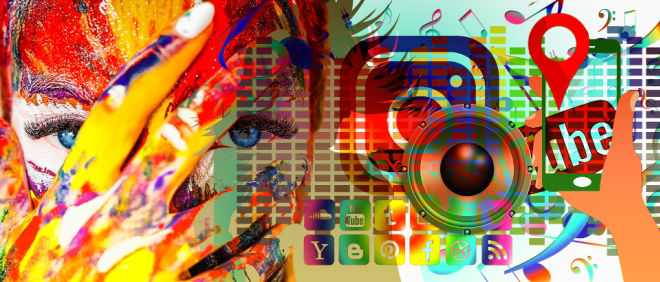Many authors come to me perplexed by what they need to do to market and publicize their books. Because they feel unsure, many suffer from overwhelm, procrastination, frustration, and sometimes just a low level of anxiety for how to spread the word about their books, which should really be a fun process.
Through helping others navigate the ocean of media by finding ways to organize and categorize what needs to be done, a system revealed itself that really works. I want to share that with you today.
There are three main buckets for organizing all the media opportunities that are out there for you and your book. Plus, a bonus fourth category to cover paid opportunities. Knowing these and putting various opportunities into the right bucket will help in more ways that you can imagine. Here they are:
YOU Media: You Media, or building your own media empire, refers to all the channels that you own. It’s your website, your blog, your email list, cell phone list, etc. Some call it owned media, but whatever you choose to call it, it refers to all your own content generation and it lives on your own real estate.
The pros of You Media:
- No one can take it away from you.
- You say what gets posted and what will never see the light of day.
BORROWED Media: Borrowed or Rented Media is your content on other people’s channels, particularly social media. Rented Media refers to your media placements on free online platforms like Instagram, Facebook, Pinterest, Twitter, and Linkedin. You don’t pay for exposure on these media channels, but you are subject to their rules and sometimes the whims of the platform companies.
The pros of Borrowed Media:
- Opening your accounts doesn’t cost you anything.
- You can find your target audience.
The Cons of Borrowed Media:
- Companies can close your account without explanation and there isn’t much recourse. The danger of borrowed or rented media is they can – and have – shut down people’s accounts. Sometimes they say you broke their rules; other times there doesn’t seem to be a reason, but they have the power to close accounts.
- Early on it was fairly easy to build an organic following, but that is more difficult now that companies have found ways to monetize this effort.
EARNED Media: Earned media – the most prized of all – is media you have to jump through some hoops to secure. It’s podcasts, interviews, reviews, features, and any other media opportunity on various media channels where you have to pitch an idea, and it is accepted. This kind of credibility from a third source is like gold. You telling other people your book is terrific is one thing. When someone else says your book is terrific, well that carries a lot more weight.
Pros of Earned Media:
- Earned media has high credibility.
Cons of Earned Media:
- It can take some time to line things up. It isn’t often a quick process.
PAID Media: There is a fourth category and that is paid media. This is advertising, or any media placement that you paid for. This can be Facebook ads, Amazon ads, Google ads, and any sponsorships. It also includes podcasts or blog posts or book reviews that require a fee.
Bottom Line
When you use these four media buckets and opportunities strategically, your marketing and publicity efforts have a better chance of being noticed and engaged by your target prospects. Good luck promoting your books!
To your success!
Joanne
P.S. I’m delighted to say you can catch my interview on the Nonfiction Authors Association podcast on July 13 at 10:00am PT/ 1:00pm ET. We’ll be talking about top media no nos and gaining confidence as an expert. The interview will be streamed on Facebook, LinkedIn, and Twitter. I hope to see you there!
#Typesofmedia
#YouMedia
#BorrowedMedia
#EarnedMedia
#BookPublicity
#BookMarketing
If you’d like to receive juicy publicity secrets directly on a regular basis, join the Savvy Sunday Community at the bottom of this page.

